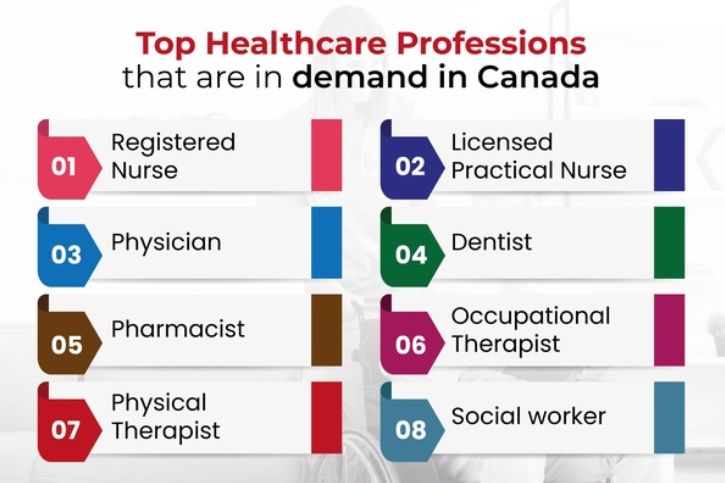Completing a healthcare administration course in Canada puts you in an excellent position to explore job roles that are in demand and can potentially lead to permanent residency (PR). Canada values skilled workers, especially in the healthcare sector, which is critical to the country’s infrastructure. The specific pathway to PR can depend on several factors, including your work experience, the province where you intend to work, and the immigration programs you are eligible for. Here are some job roles and strategies that might help:
Job Roles in Healthcare Administration
- Medical Administrator: Managing operations in healthcare facilities, such as clinics, hospitals, and private practices.
- Health Services Manager: Overseeing specific departments within healthcare institutions, ensuring they operate efficiently and deliver high-quality care.
- Health Policy Analyst: Working with government bodies or organizations to analyze, develop, and implement health policies.
- Healthcare Consultant: Providing management consulting to healthcare organizations to improve their efficiency, structure, and strategy.
- Clinical Manager: Overseeing the administration of specific clinical areas or departments, focusing on healthcare delivery and administrative efficiency.
Pathways to Permanent Residency
- Canadian Experience Class (CEC): Part of the Express Entry system, the CEC is aimed at those with skilled work experience in Canada. Working in a professional job role in healthcare administration for at least one year can make you eligible for this program.
- Provincial Nominee Program (PNP): Many provinces have nominee programs targeting individuals with skills, education, and work experience that contribute to the economy of that province. Some PNPs have streams specifically for candidates working in healthcare.
- Federal Skilled Worker Program (FSWP): Also part of Express Entry, this program is for skilled workers with foreign work experience who want to immigrate to Canada. A Canadian education and work experience can significantly increase your points under the Express Entry Comprehensive Ranking System (CRS).
- Atlantic Immigration Pilot Program: If you’re interested in working in one of Canada’s Atlantic provinces, this program supports candidates with job offers in those regions. Healthcare jobs are often in demand here.
Steps to Take
- Gain Canadian Work Experience: Secure a job in your field of study to gain relevant Canadian work experience. This helps you qualify for specific PR programs and can improve your Express Entry CRS score.
- Network: Engage with professional networks in the healthcare and administration sectors. This can lead to job opportunities and valuable connections within the industry.
- Stay Informed: Immigration policies and eligible occupations for PR programs can change. Stay informed about the latest updates from Immigration, Refugees and Citizenship Canada (IRCC) and provincial nominee programs.
- Consider Professional Help: You might want to consult with an immigration lawyer or a registered immigration consultant to explore the best PR pathway for your specific situation and to ensure your application is as strong as possible.
Remember, obtaining a job offer in a relevant field provides you with valuable experience and can be a significant step toward securing permanent residency in Canada. Ensure your job is classified under the National Occupational Classification (NOC) as level 0, A, or B, as these are considered skilled positions and eligible for most immigration programs.




